Topics at the Allianz Center for Technology:
13th Allianz Motor Day
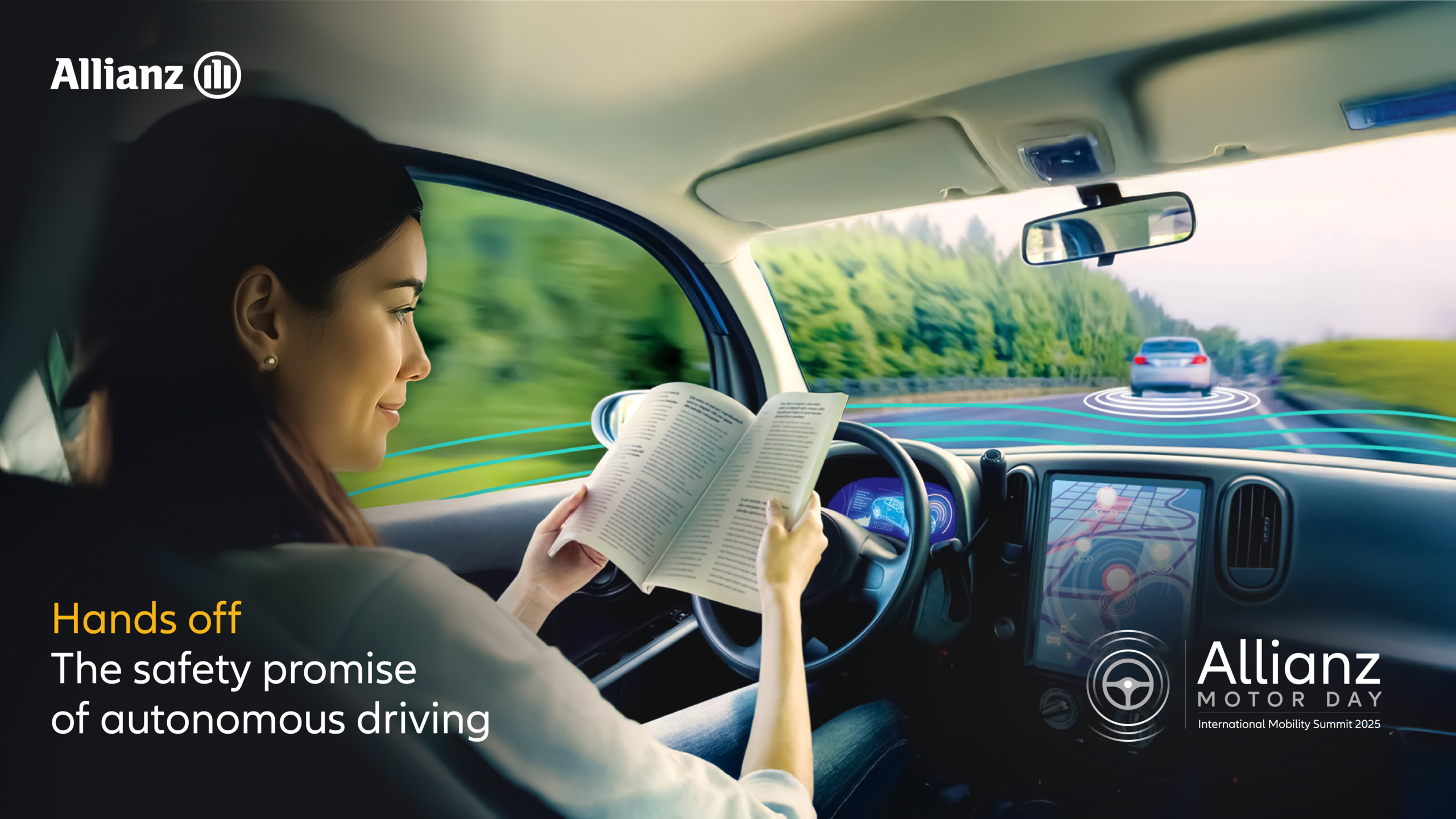_Text%20version%202-2560x1440.png)
October 2025
This year's Allianz Motor Day focused on autonomous driving and how our mobility is changing with the development of new systems in vehicles.
Level 3 vehicles are already on European roads, while Level 4 pilot projects – vehicles that move completely autonomously within defined environments – are already in use in cities such as Hamburg, Munich, Oslo, and Shanghai. The world is on the cusp of a new era of mobility that will redefine the way people and societies move around. This progress raises profound questions about vehicle safety, liability in the event of accidents, the use of data stored in vehicles, and expanded access to mobility for people who have previously been excluded.
We discussed precisely these questions with the experts present at the Allianz Motor Day, where we also presented the AZT's research findings. In the run-up to the Motor Day, a meta-study summarizing the current state of research in the field of autonomous driving was conducted, and in addition, our own accident research on the safety effects of autonomous systems and a consumer survey in seven European countries were carried out.
The results of the studies were presented to the press, and the following demands were formulated by Allianz:
1. EU-wide ‘driving license’ for automated vehicles to ensure uniform testing standards: Allianz calls for a European approval model for autonomous vehicles with uniform technical type approval (homologation) and testing procedures. These should specify the requirements that autonomous vehicles must meet and regulate the simulations and tests they must pass. This would enable cross-border use without repeated certification, simplify market access, increase safety, and accelerate innovation.
2. EU-wide uniform standards for access to accident- and safety-related vehicle data for insurers and regulatory authorities, with critical data remaining within European jurisdiction and treated as a strategic asset.
The European Commission's proposal on the exchange of vehicle data under the EU Data Act (Regulation 2023/2854) provides an important basis for this. Allianz believes that use cases for data exchange should be evaluated for both benefits and costs. Sharing all available data across the board is not sensible given the considerable expense. Consumers should also be protected from indiscriminately passing on all their car data to third parties. For accident- and safety-related vehicle data, however, the advantages are clear. A framework developed jointly by insurers, manufacturers, and regulatory authorities would improve road safety, strengthen public confidence, and accelerate the acceptance of autonomous mobility.
3. Joint European database of critical traffic situations for autonomous vehicles.
This database must record all accidents in autonomous mode and near misses where accidents were narrowly avoided. The regulatory authorities must define the criteria for this.
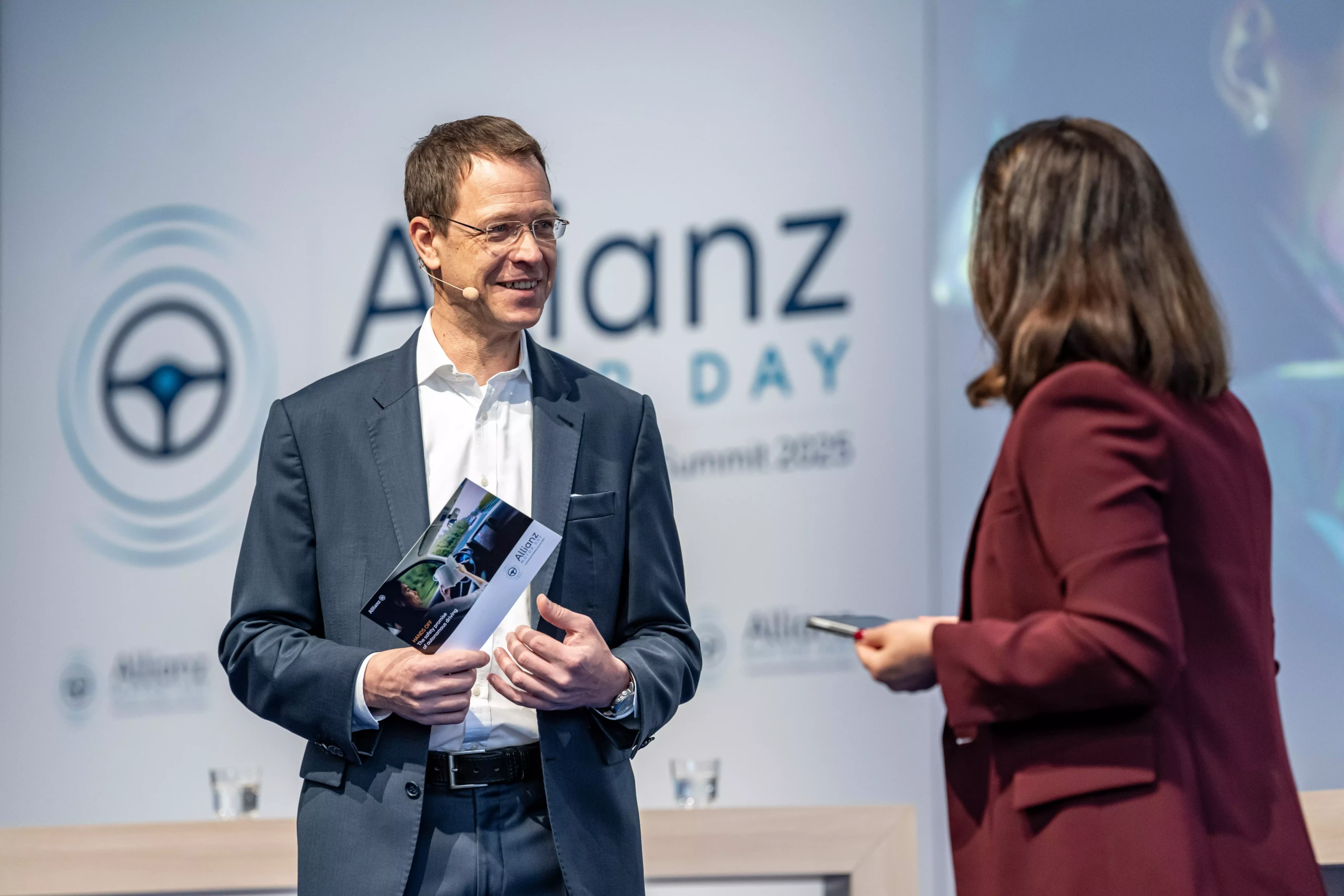
Dr. Christian Sahr (Managing Director of AZT) and Kathrin-Cécile Ziegler (moderator) open the event.
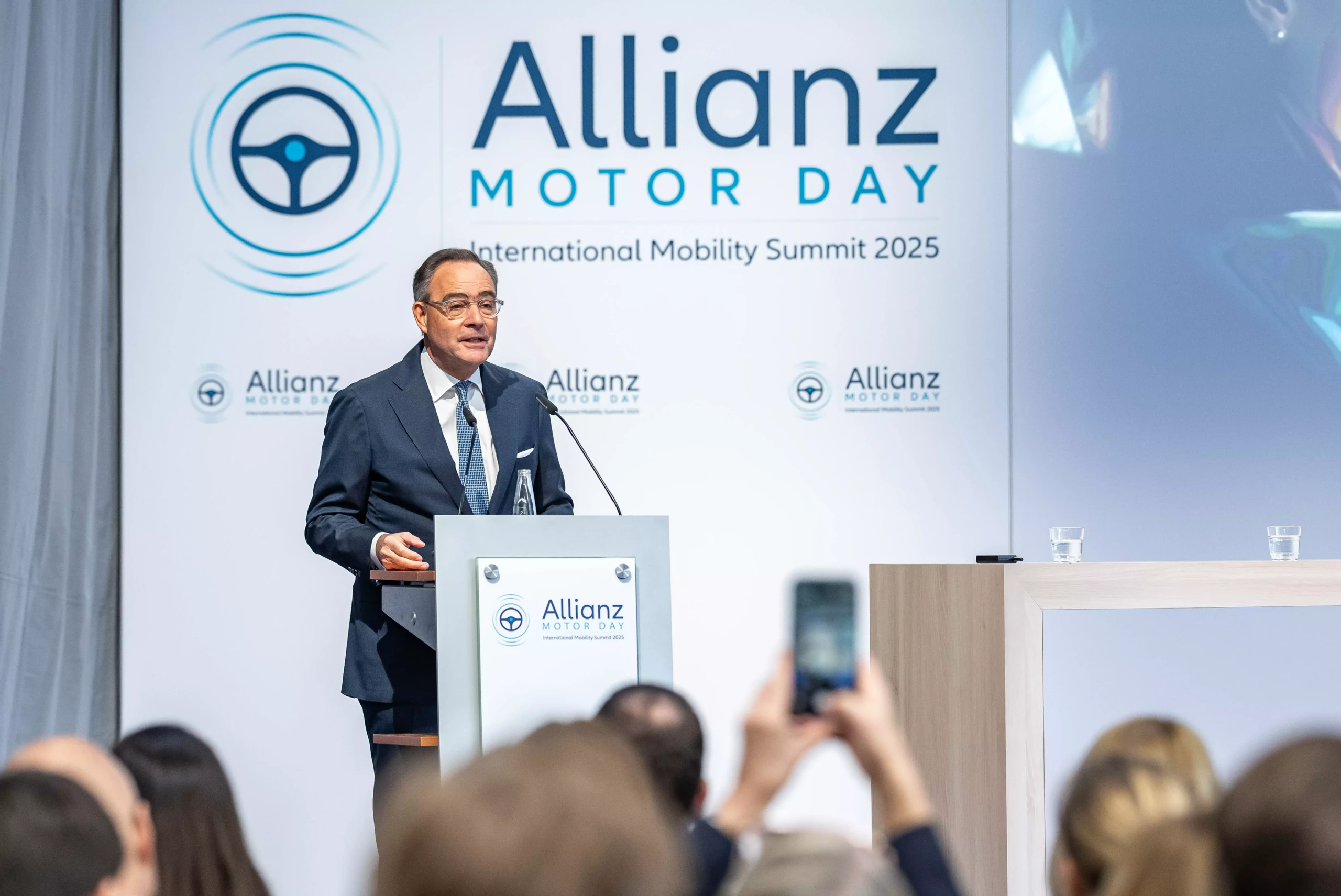
Keynote speech by Dr. Klaus-Peter Röhler (Member of the Board of Management of Allianz SE)
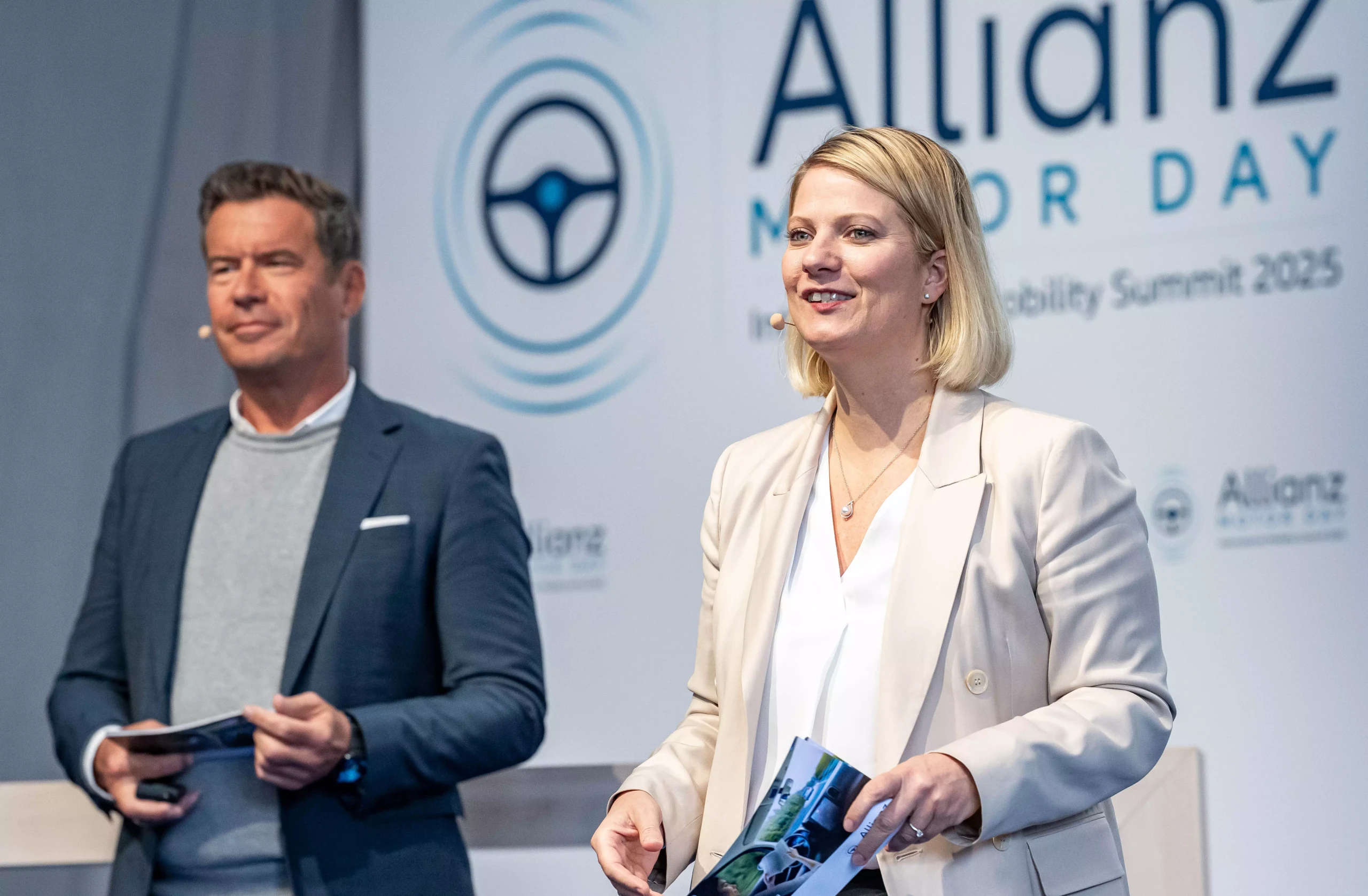
Dr. Lucie Bakker (Chief Claims Officer, Allianz Versicherungs-AG) and Frank Sommerfeld (CEO, Allianz Versicherungs-AG) present on the topic of autonomous driving
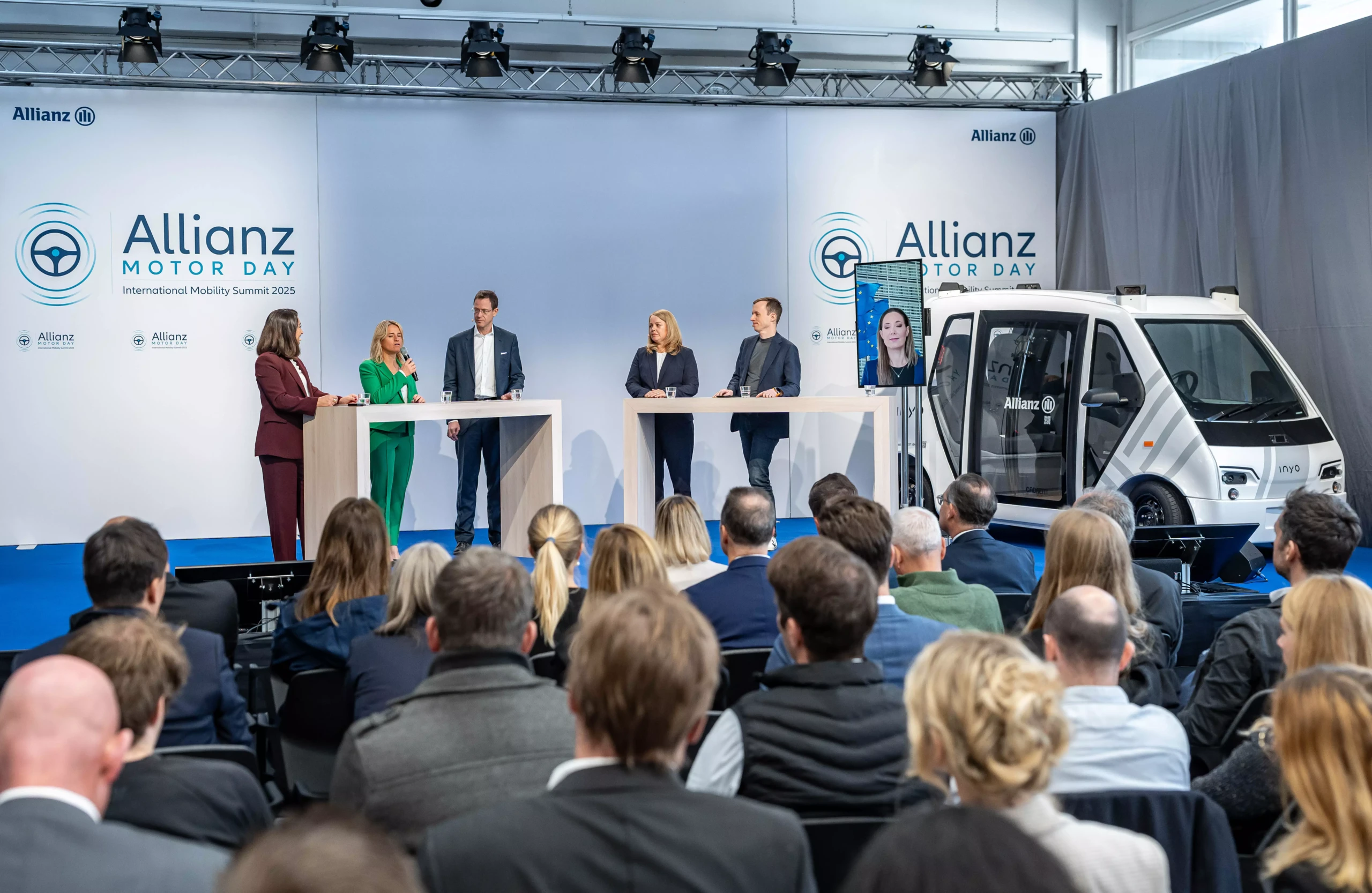
Panel discussion (from left to right): Kathrin-Cécile Ziegler (moderator), Verena Bentele (12-time Paralympic champion), Dr. Christian Sahr (Managing Director, AZT), Susan Sahl Poynor (Global Head of Mobility, Allianz Partners), Sascha Meyer (CEO, MOIA GmbH), and Maria Cristina Galassi (via online stream, European Commission DG)
More information about the event can be found on a dedicated Motor Day landing page: https://www.allianz.com/en/press/topics/motor-day-2025.html